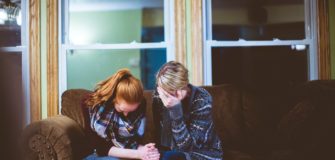Self-care is an important part of supporting recovery from trauma. Whether it’s trauma from an accident, surviving natural disasters, or recovering from bad experiences, it’s helpful to take time for yourself and make healthier decisions.
During and after a disaster, kindness is needed to help oneself recover better. Research shows that being compassionate towards ourselves and others helps build self-esteem, increases resilience, and promotes a better mental disposition.
Trauma makes dealing with heavy emotions extremely difficult. There will be days when coping feels tougher, and practicing self-care can make these days easier to manage. Keep in mind that having bad days doesn’t mean better ones can’t exist. Acknowledging these feelings and giving yourself space to process them at your own pace can help you heal better, and become a better individual overall.
Ground yourself with breathing techniques
Studies show that distress can make us breathe quicker and shallower, which can contribute to tension, lightheadedness, and even trigger a panic attack. Deep breaths help your body calm down and think better, so trying them in a dire situation is encouraged.
- Find a spot where you can relax.
- Close your eyes and try to relax your body. Let your limbs loosen and get comfortable.
- Take a deep breath in through your nose for 3-4 seconds.
- Let the breath out for 4-5 seconds.
- Keep breathing in this pattern. Repeat for 10 minutes, or however long you need to feel grounded.
Deep breathing is beneficial for meditation and can be a good mindfulness practice.
Keep in touch
Surrounding yourself with loved ones can also help cope with trauma. During bushfire recovery, getting in touch with your community is vital. You might need to reach out to support others and find support yourself.
- Check in with friends and family through calls or messages.
- Find ways to make connections outside your immediate circles. Your local community might have recreational clubs and functions, so check out that tennis club or attend a faith-based gathering to foster new connections.
- Bond with your pets — doing so relieves stress!
- Skip “doom-scrolling” and consider spending time offline.
- Connect with people who understand. Engaging with empathetic people in support groups like the SANE Life After Bushfires forum can help you process heavy feelings better.
- Take some time for yourself. It’s normal to feel overwhelmed after a traumatic event, and it’s okay to step back when you need to recover. Just make sure to check back in again afterwards.
Make healthier decisions moving forward
Self-care covers so many activities one can engage in to ground themselves. But it in’t all meditation and massages. Self-care also involves creating and maintaining healthy habits that help your future self.
- Get on a well-balanced diet, and cut back on alcohol and sugar intake.
- Expose yourself to some sun rays! Going for a walk or jog gives you mood boosters.
- Start journaling. You can keep track of daily moods and express your thoughts freely on the page.
- Remember three different things you are grateful for every day.
- Make to-do lists and little reminders. Trauma can trigger memory loss, so go easy on yourself with daily tasks.
- Stick to a consistent sleep pattern, and keep devices away an hour before bed to let your mind and eyes relax.
- Give yourself room to make mistakes! Rushing the healing process after trauma will only stress you out. Go at a comfortable pace.
Commit to a routine of self-care
A defining result of trauma is a lack of focus. Committing to a routine can ease worries of unpredictability because knowing what to do next takes stress off your plate. Sometimes it may get difficult to stay consistent, but don’t give up.
- Keep your routine simple to avoid being overwhelmed.
- Include time to heal physically.
- Plan around routine changes and adapt at your own comfort.
- Commit to at least one act of self-care for yourself.
Reaching out for additional support
If you are concerned about how you’re feeling, speak to your existing mental health professional, or contact the SANE Helpline on ( 1800 18 7263 ) for information, advice and referral. You can also connect with others who have experiences bushfires and understand what you’re going through via online, moderated, anonymous forums.
Original story found on the SANE Australia website. Note: Content has been edited for style and length.
Nina Alvarez is a Content Producer for Healthcare Channel. Her interests include writing, particularly about the healthcare sector and the many ways it can improve to further benefit people from all walks of life.






















